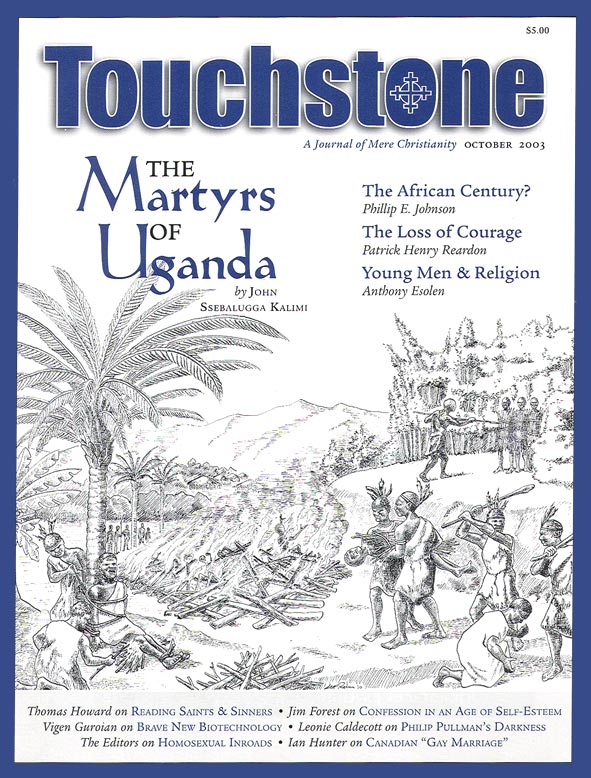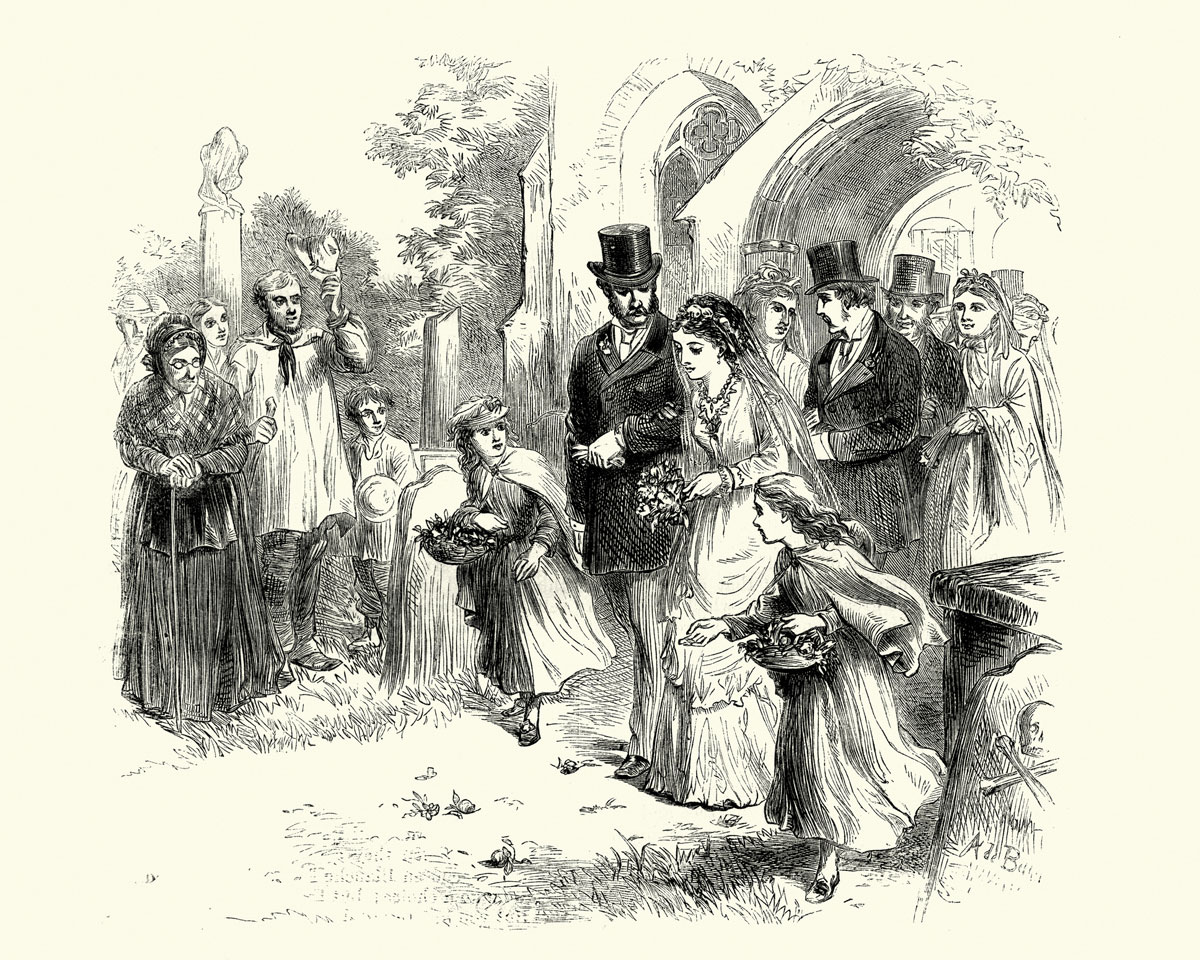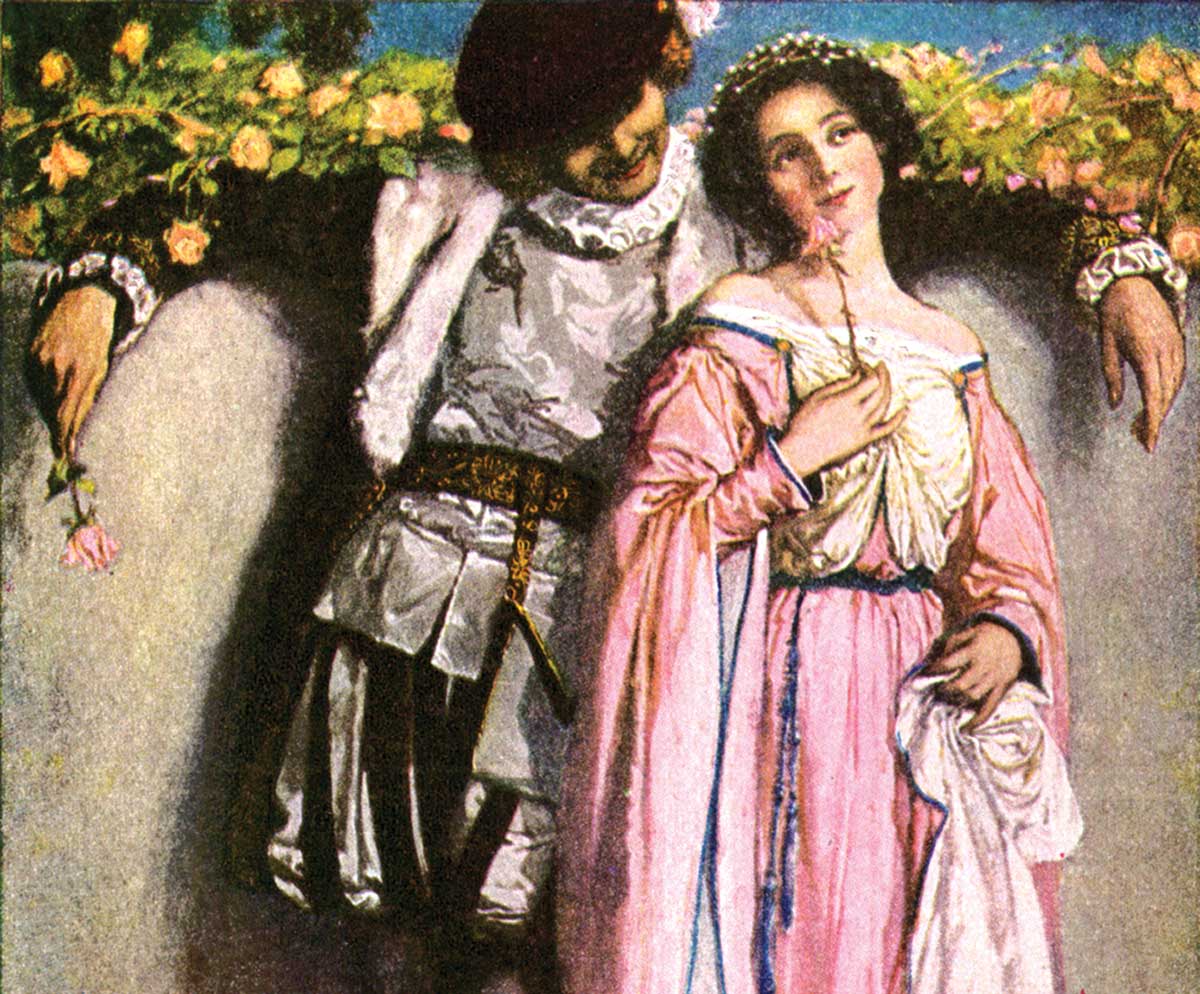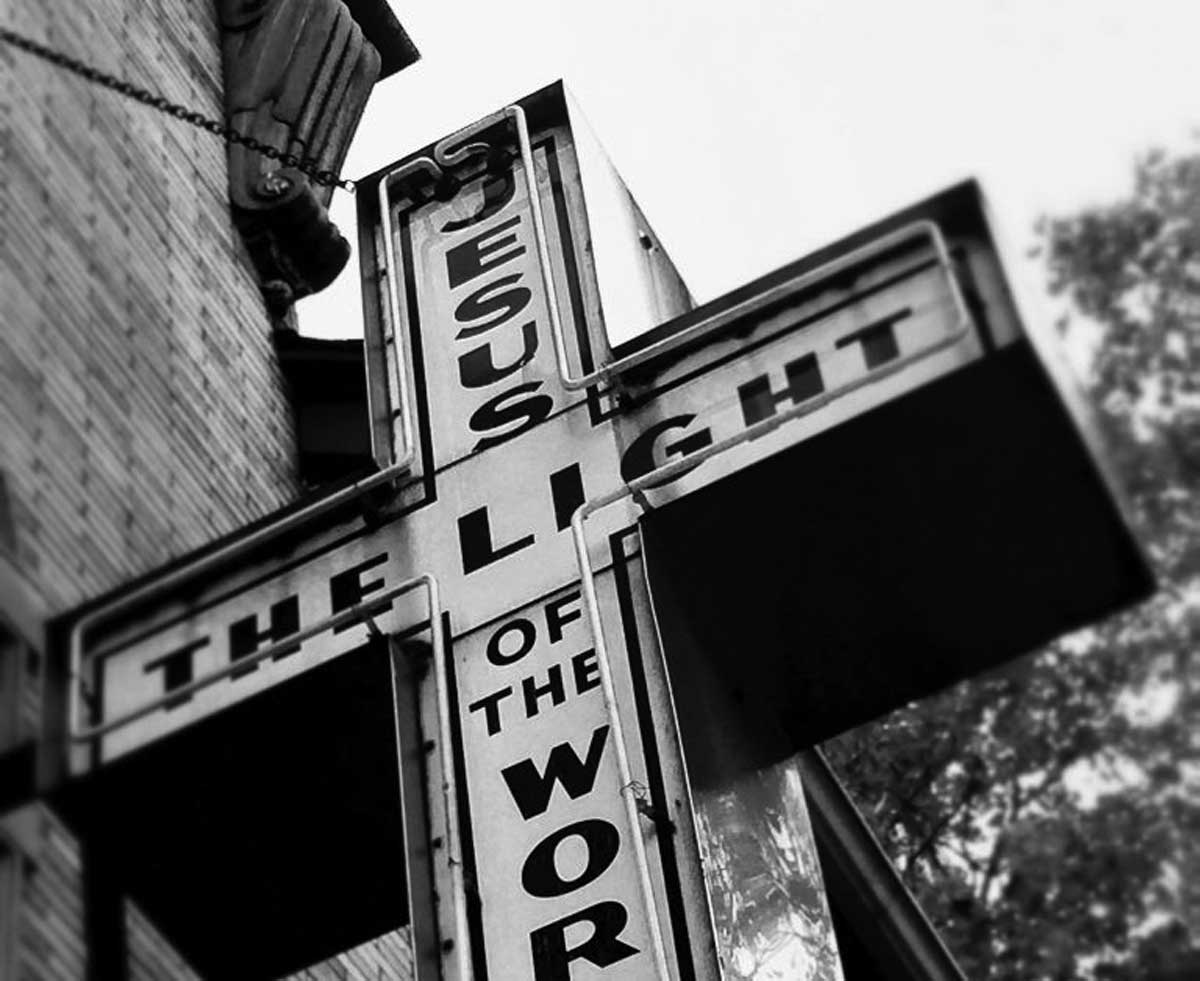Homer, Sex & Bungee Jumping
Patrick Henry Reardon on the Lost World of Courage
Let us speak of courage. In fact, that effort may itself require some touch of courage, since the word is already employed a good deal these days, especially in political speeches. Still, I am not so certain that courage is currently a matter of sustained concern or, generally, the goal of conscious striving. We are all glad to see valor when it happens, I guess, but it does not seem to me that we regard it, very widely, as an ideal to be cultivated, much less a matter of duty.
Was the case ever different, I wonder. One could argue that courage has been, from the beginning, a “class virtue,” in the sense of having value chiefly in the aristocratic setting. Courage was never, in antiquity, something to be expected of an average man. (Strictly speaking, of course, the same could be said of all the “natural” virtues. Indeed, the Greek word for “virtue,” arete, is of the same root as the word for “best,” aristos, from which we derive our “aristocracy.”)
Now, it is true enough that the various words for courage appear in ancient literature mostly in aristocratic settings, but such is also the case of most words found in books, especially abstract and morally descriptive terms. Does this mean that only aristocrats can be courageous? Well, only a consummate fool could think so. Historically, nonetheless, and as treated in our earlier literature, reflections about courage tend to be associated with a certain class of men—leaders, especially military leaders.
This association is clear enough in Homer. Now, I do not, like Alexander the Great, sleep with a copy of the Iliad under my pillow, but it is one of a handful of volumes that I try to read annually, and when it comes to “natural virtues,” I think one can do a lot worse than Homer. In Homer, courage is associated with combat. Bravery is a matter of aristocratic obligation. It is the necessary mark of those who can truly be called the “best” (aristoi). For such folk, courage is not a matter of choice. It is a duty to be cultivated.
Weak Moderns
At this point, it would be good to note a certain weakness about our word leader when used in a military context. The modern military leader is usually the safest of men. He is rarely in any physical danger. It is stretching the point a bit to use words like valor or bravery to describe the modern general or admiral who directs ballistic attacks from a safe distance.
Such was not true of the ancient military leader. He really “led” in the sense of going out in front. From Hektor of Troy to Alexander of Macedon, the leader was in very real danger. He was in the thick of the combat. Courage, as a mark of the best, makes no sense at all except in a context of threat and exposure to the possibility of defeat. If there is no hazard being faced, how can one speak of valor?
So just how does a person cultivate bravery outside of the context of battle? Frankly, I do not think it is possible, and this is probably the source of the problem. We no longer think of life as a struggle, or, if it does prove to be a struggle, we are disposed to think this an anomaly. We tend to presume that life is not really supposed to be all that difficult, and, if it is difficult, something must be terribly wrong.
Now, I submit that this situation is new. Not so long ago, it was yet normal for parents to tell their children to be brave. This exhortation was done in the imperative mode—they were commanded to be brave. It was still expected that boys and girls would grow up with the notion that courage was a matter of elementary duty, for the simple reason that life was tough and courage was required.
Somewhere in there we seem to have lost this sense of life’s essential insecurity. Somehow we were duped into thinking that things are supposed to be safe. (Dear God, now we even talk about “safe sex,” an obvious oxymoron and manifest heresy.) Young married couples were told not to procreate children until they were “financially settled,” for example, and people began to speak of “security” for their old age. Even the least exposure to danger was regarded as irresponsible. How can courage thrive in such a context?
Patrick Henry Reardon is pastor emeritus of All Saints Antiochian Orthodox Church in Chicago, Illinois, and the author of numerous books, including, most recently, Out of Step with God: Orthodox Christian Reflections on the Book of Numbers (Ancient Faith Publishing, 2019).
bulk subscriptions
Order Touchstone subscriptions in bulk and save $10 per sub! Each subscription includes 6 issues of Touchstone plus full online access to touchstonemag.com—including archives, videos, and pdf downloads of recent issues for only $29.95 each! Great for churches or study groups.
Transactions will be processed on a secure server.
more on sex from the online archives

28.3—May/June 2015
Of Bicycles, Sex, & Natural Law
Describing Human Ends & Our Limitations Is Neither Futile Nor Unloving by R. V. Young
more from the online archives
calling all readers
Please Donate
"There are magazines worth reading but few worth saving . . . Touchstone is just such a magazine."
—Alice von Hildebrand
"Here we do not concede one square millimeter of territory to falsehood, folly, contemporary sentimentality, or fashion. We speak the truth, and let God be our judge. . . . Touchstone is the one committedly Christian conservative journal."
—Anthony Esolen, Touchstone senior editor













